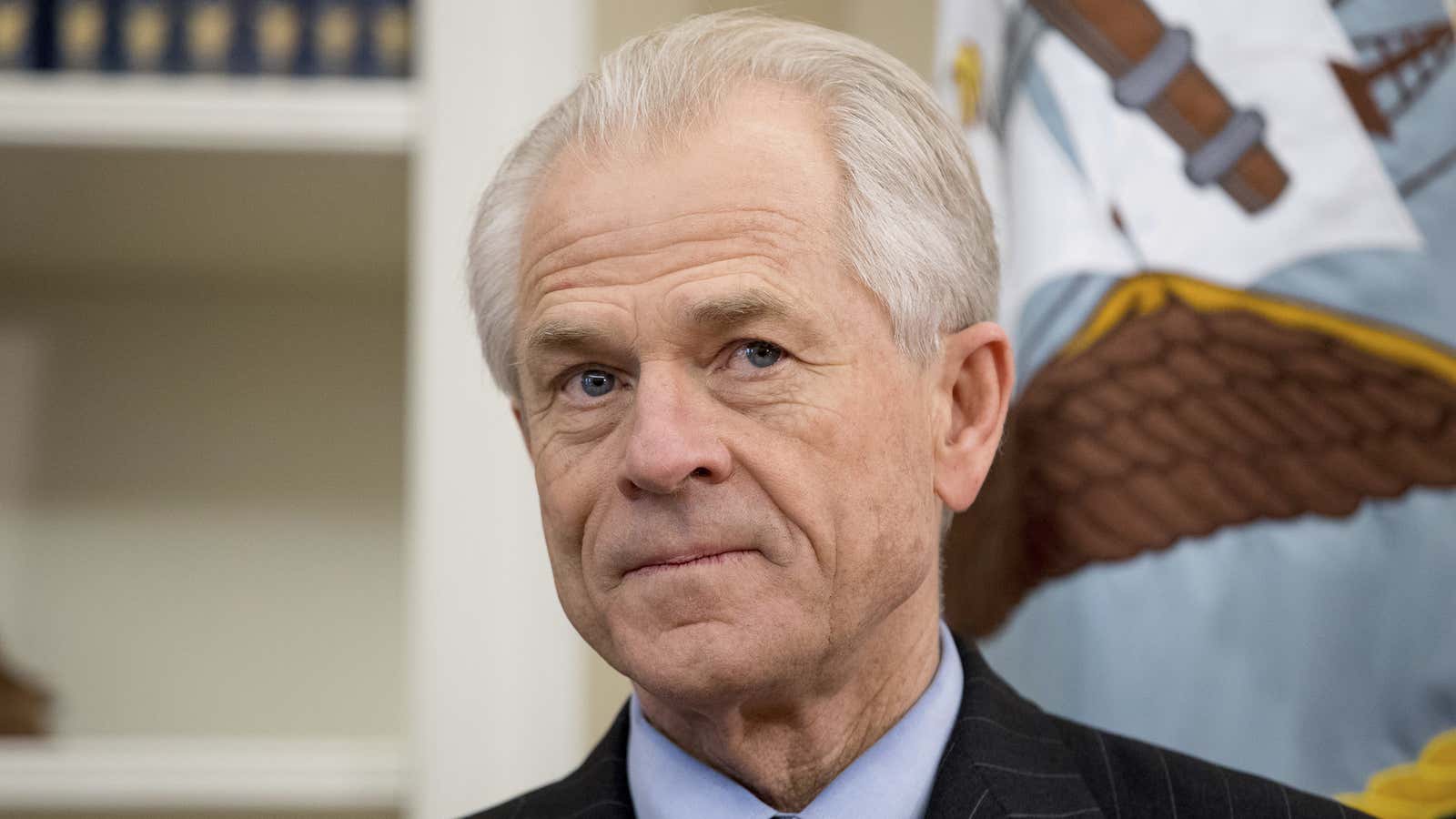Donald Trump is sending a high-level US delegation to China tomorrow (May 3) in the hope of de-escalating trade tensions between the world’s two largest economies. According to the White House, the group includes treasury secretary Steven Mnuchin, economic adviser Larry Kudlow, trade representative Robert Lighthizer, and trade policy adviser Peter Navarro—a name that quickly raised eyebrows among veteran China watchers.
Navarro is one of the strongest voices on trade in the Trump administration. He joined Trump’s campaign team—and then the White House—thanks to his long and colorful history of China bashing. But there have been some serious doubts about his China expertise: The 68-year-old economist doesn’t speak Chinese, nor is he known to have any experience interacting with China’s policymakers. In fact, it doesn’t seem he’s spent much time in China at all.
Navarro’s involvement in the China trade talks is a reflection of how divided the White House is over the matter. While Navarro and Lighthizer share Trump’s protectionist views on trade, Mnuchin and Kudlow are free traders who take the opposite line. As Politico puts it: “it’s very unusual for the United States to be sending a team of negotiators who don’t really agree with each other, much less the other side.”
In the tit-for-tat trade battle between China and the US, Beijing is targeting Trump’s voter base in hopes of exerting the most leverage, aiming tariffs at American agricultural exports such as soybean and sorghum that come from predominantly Republican-voting states. Washington, meanwhile, sees China’s tech ambitions as the area where it can do maximum damage: It banned Chinese telecom giant ZTE from buying hardware or software from American firms, and is now probing Huawei along similar grounds.
It will be hard for the US and China to find common ground during the two days of trade talks. According to the New York Times (paywall), senior Chinese officials won’t even discuss the two biggest demands that the Trump administration has made in recent months: to cut the US’s $375 billion annual trade deficit with China by $100 billion, and to rethink an industrial plan called “Made in China 2025” that the US says is unfair because of state investment and subsidies to favored sectors. Beijing, for its part, may be willing only to lower tariffs on vehicle imports and ease restrictions on Hollywood films screened in China, the Wall Street Journal reported (paywall).
According to the Journal, a senior Chinese official said at a closed-door meeting last year that, “We’ll not engage with Navarro.” It’s no surprise, given Navarro’s extreme criticism of China’s economic model, best captured by his 2011 book Death by China. In it, Narravo blames China for pretty much everything, from pollution to currency manipulation to American job losses.
After Navarro took the spotlight as Trump’s trusted China hand, a New Yorker reporter (paywall) wrote that he couldn’t find one American economist who fully agreed with his hardline views on China and trade, “even with [Navarro’s] assistance.” Quartz previously reached out to Trump’s transition team, and Navarro himself via his personal and work email, to ask if he has ever traveled to China or interacted with Chinese scholars or policymakers, but did not receive a response.
